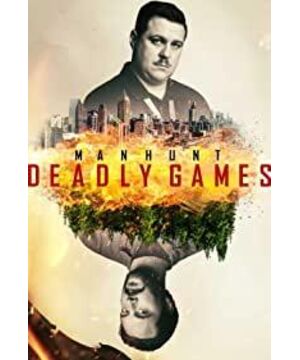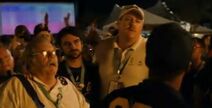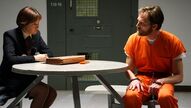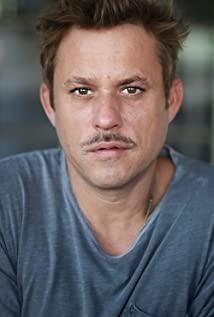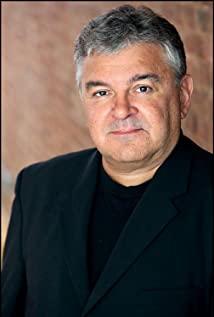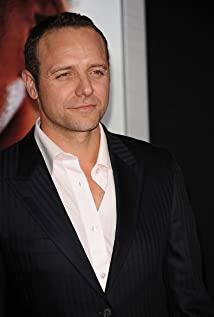It stands to reason that this is an ambitious drama. Ambitious means that neither the case nor the puzzle solving is the end, and there are deeper and more universal themes to be explored and expressed.
Two-line narrative, and then combined into one. One line is the case solved in 1995. It is written that Fitz, a newly recruited agent who is no longer young, joined the Unabomber task force, how he did not think independently of authority and authoritarianism, how to break away from his own way, how to forget himself without sleep and food, and how to hurt others by any means. How to be squeezed out and robbed, how to feel confused and to live alone; the other line is the 1997 trial. Fitz, who lived alone in a lonely hut like Ted for two years, started with Ted in order to regain the credit and to "find the answer." Several confrontations:
In the first round, Fitz tried to close the relationship and "help" you choose the best way out with the attitude of "I know you". Ted pointed out that Fitz just wanted to get rid of his professional dilemma and give it a go. The reason why I look at you differently is because you and I are the same kind of person, and you look at language from a different perspective. This is the first step to get rid of slavery and regain freedom. Fitz, who was embarrassed, almost instigated rebellion and failed .
In the second round, Fitz showed Ted all the evidence in his hand, telling him that there was hard evidence that plead guilty was the most favorable option for him. Fitz countered that the evidence came from the search of the cabin, and the search warrant was only based on On the lone evidence given by the "forensic linguistics" you created, as long as I catch this weak link in court, all these "iron evidences" will collapse, and your credibility will be destroyed together. , Fame and future, as well as the "forensic linguistics" you have in mind. Completely defeated.
In the third round, Fitz consciously caught Ted’s pain point: you can live forever in the world as "Unabomber" if you confess your sins. If you deny and renounce your sins, your manifesto is just a slander, a declaration that you don’t even dare to admit. Still expect someone to believe it? Freedom and legacy, you have to give up the same. Ted said you told me about legacy? I'm your legacy, right? You are eager to confess my sins. Isn't it because of your most urgent desire to prove that you are different and proclaim that you are smarter than anyone else? Isn't it because catching me is your only and greatest achievement? In the next shot, Fitz left, and the two of them were in a place where no one could see, and they held on to the wall and held their chests together. Killed a thousand enemies and suffered 800 losses. This round, Ted won a terrible victory.
In the last round , Fitz took Ted to the hut where he was uprooted and told him that the lawyer planned to use "mental disorder" to defend him, telling him that you think the worst case is nothing more than death? No, no, they won’t even give you this, you will... be "cured", you will become "normal", and you will return to society, just like any "sheep" you despise. You spent a whole life of opposition and struggle. This time, you didn't even have the chance to kill yourself. When Ted lost his demeanor and calmness, swearing and beating like a trapped beast being forced to the corner, Fitz knew he had won this time.
But did he really win? Was it the unsocial agents who defeated Unabomber, the invisible, innocent and far-reaching omnipotent social rules, or the "them" responsible for "erasing" the "heresy"? Ted pleaded guilty. He was a martyr and a warrior; although he succumbed to the law, he did not give up his beliefs. What about Fitz? The one he described to Ted made a suspect in the serial bombing so scared that he would rather sit in prison for a “normal” life. Isn’t it true that he himself has passed half of his life and will live another half of his life? So, who on earth is going to be in prison for a lifetime?
*******************************
I don’t think Ted’s idea of modern technology is any insight, I don’t even think it’s new:
"Technology has become the de facto controller. It forces people to constantly pursue faster cars, taller buildings, more powerful computers, and smarter phones; if the original intention of all this is for a better life , Then it has already deviated from that track and has become a source of entanglements, disputes, and involuntary people. People have become slaves to machines." Therefore, "the technological society is essentially anti-freedom. If we want to regain freedom, we must destroy technology and return to a more primitive and authentic lifestyle."
However, is the "more primitive and more authentic" rural life really good? Working at sunrise, taking a breath from day to day, a year’s hard work, may only be able to eat and wear, the biggest hope, but the weather is smooth; the child may not be born, and it is likely that it will not be raised after birth; if you are sick, you will basically take care of your life, no matter how rich you are It’s not a rhetoric to change children and eat when they encounter chaos in a disaster year. Even if everything is peaceful and smooth, people who have been overwhelmed by survival, even a piece of clothing has to grow cotton, harvest cotton, remove seeds, spin yarn, weave, dye, sizing, and tailor the upper body. become free? Got rid of slavery?
"A good life without technology" is just the hypocritical imagination of modern people with their own filters. Technology allows us to have greater opportunities to survive, lower costs, and easier communication. Technology allows us to go further, see more, and have a more comprehensive perspective. More importantly, it makes the use of resources more efficient, and more resources are available for use. It allows us to obtain without the loss of others, and frees us from the enslavement of others. The material enjoyment of ordinary people in any city today is not inferior to the ancient nobles, but no one of us has a "subordinate" in the family. Today we no longer have to face the choice of "letting our son or mother starve to death"-people on this planet still die every day from malnutrition caused by lack of food, but that is definitely not because of technology, but because of lack of technology.
What's more, even if you want to "roll back" to the happy time when no technology dominates mankind, what is the end? Eliminate electronic products, eliminate electrical machinery, eliminate steam engines, eliminate iron tools such as hoes and sickles, or eliminate domesticated animal husbandry and planting? Beginning from the tree, when and where will human beings be without technology? Ted wanted to announce the guilt of technology, but ridiculously chose the postal system as the target of terrorist attacks-the systematic delivery of mail, didn't it existed before the first industrial revolution? What are you talking about against it? Also, your true life in the jungle cabin does not prevent you from riding an old bicycle and reading books printed by a machine on a few bookshelves in the town-no matter how old the bicycle is, can it be done with bare hands? Made? Without technology, there may not be as many books that you have come into contact with in a lifetime.
Technology is not the root cause of the loss of freedom, talent is.
*******************************
What Ted and Fitz fear together is the alienation of people in modern society. Fitz twice described his experience of waiting for the red light to pass at a crossroad in the middle of the night. There was no car on the road, but he still mechanically and obediently stopped at the intersection and waited for the green light to turn on. This is not so much what technology has done to him, as it is that external rules have been internalized into action rules; the pressure of "combination" has shaped a part of him.
In the last conversation, Fitz patiently described Ted's normal life after being exonerated with mental abnormalities: "...They will put you in a mental hospital and use those "therapies"-threats, punishments , Reward until you are completely cured. It may take many years, but you will definitely be "cured". You will become a "normal" person, and you will return to society. You will have a credit card, an apartment, There are business casual clothes hanging in the closet...You will have a job in the office, working from 9 to 5, step by step. You will buy a mobile phone in the first month of salary, and a TV in the second month. If it is more luxurious Buy another Nintendo. You lie in bed every night and watch TV until you fall asleep. You go to the mall every weekend and go to the Electric City. You wonder whether it’s better to change the channel to 20 inches now, or save money and change to a bigger one. ...Maybe someone recognizes you as Unabomber, and you answer him, "Yes, I am, but my brain was sick. I am cured now." Then, you went home and watched TV. You even Can't remember what you wanted, what you wanted to say."
If the cured Ted can work harder and become a rocket scientist with his mathematical talents, he would replace his small apartment in the city with a large house in the suburbs, marry a blonde trophy wife, and have two children, the oldest one is a son. The youngest is a daughter. She has a dog named fluffy, two cars, a Ford sedan, an SUV, weeding on Saturdays, going to church on Sundays, traveling twice a year, once to ski and once to the beach. Hey, it seems that this is called the "American Dream".
This is what really binds us. The high degree of division of labor degenerates people into small parts on large machines -I am not talking about industrial workers on the assembly line, I am talking about you in the grid, you in the 7-11 line, and I am also talking about coveting the interlocking room. You, business class and you in five-star hotels. The part that learns to reflect and always asks questions, the machine said that he didn't like it. Therefore, social expectations and group pressure have set a good example. It tells people what is a "happy", "successful" and "worth living" life, and what people "should" like and "should" take for granted. "What do you dislike. I’m a brick in the motherland. Where do I need to move it? Isn’t that good?
Fitz felt bad. On the line in 1997, Fitz went to his former partner, Janet, a female PhD in linguistics, and said his entanglement and pain:
Fitz: "I don't know when I felt so...powerless."
Janet: "Everyone has this feeling, everyone has it."
Fitz: "If everyone feels this way, what have we done? Nothing. We like that feeling, like the feeling of being trapped, restrained and defeated. Maybe freedom scares us more than slavery . "
Janet: "The fact is that we can't do anything. This is life. You can only bear it and live."
Fitz: " No, it's not life, it's just being alive, it's sleepwalking . Watching TV, eating junk food, and going to work every day for someone to accomplish something. No one has ever done anything , and they dare not even try. Except Ted. "
Janet: "Yes! He tried, but Fitz, he is Unabomber, he is a bad guy."
Fitz was angry and confused. He was unwilling to be a small screw on a big machine. This unwillingness drove him from a small uniformed patrolman to an agent of the Behavior Analysis Department of the FBI, driving him almost single-handedly to solve the case of hundreds of people who have been busy for several years. He longs for fame, honor, power, and respect. He longs for success in all mundane senses. For this reason, he does not hesitate to sell his respected partners and take advantage of Janet's goodwill. But he is more afraid of mediocrity, of "life without scrutiny" than of loneliness. As far and near as he could see, there was only Ted as a companion. He grabbed Unabomber for success, but he agreed to persuade Ted to confess his guilt and bow his head. It was for the forerunner of the same way, Don Quixote, who was fighting against the entire modern society, to ask for a toss and turn, but he couldn't ask for an answer.
Ted has no answer. He saw the problem correctly, but gave the wrong answer. The trauma of childhood and the paranoia of character made him keenly aware of the universal instrumentalization of people, and the proliferation of consumerism and the decline of independent thinking brought about by it, but he could not give a realistic solution and could only be attributed to it. "Machine" and "science and technology" can only advocate that people all quit the city and return to the mountains and jungles, digging wells for drinking, and plowing for food. He believes that in this way, the alienated person can be saved and the deprived freedom can be regained. If not, "Even if you die as a person, it's better than being a cog on a machine and surviving."
At the end of the episode, Fitz once again stopped at the crossroads in the middle of the night, waiting for the red light to pass on the empty street. He didn't find his answer, and he was still alone.
*******************************
The loneliness of Ted and Fitz is not difficult to understand, and it is not uncommon at all.
There is a question that ultimately separates people from the category of "animals"-"How do I want to spend my life?" The so-called "freedom" may be the power to find answers to the questions by oneself.
Not everyone has this kind of "advanced" troubles. But once you start thinking about it, trust me, you can't think about it anymore. The good news is that from the moment you start thinking about this problem soberly and consciously, your evolution to "human" is complete. The bad news is that this kind of self-consciousness makes you no longer tolerate someone else writing the answer to you, and writing the script for you to act accordingly. Ted's resistance was very fierce. He became Unabomber; Fitz's resistance was relatively mild. He left the "perfect" life of a "perfect" agent with a good wife in his arms and a young son around his knees, and walked into Ted's cabin by himself.
In this sense, freedom is not a kind of blessing, the definition of "finding one's own way" naturally binds "loneliness". The paradox of "freedom" is that once you start to realize its existence-realize that you don't have to live the way others expect, realize that you only owe yourself a life-it is like a rogue software and never delete it anymore. If you don’t drop it, you can’t go back to a state of "unaware". For those who "woke up", "successful life" is good, but it must be "my own choice."
Ted’s brother said that it might be better for his brother to stay in prison: three meals a day, hot soup and hot water, taken care of, and protected. Even the size of the cell is about the same as his brother’s hut in the forest—he lives alone in that hut. What's the difference between living a life and going to jail?
Ted said that if there is a medicine in the world, taking it will make me "normal" so that I can stop thinking about all these...problems, I think I might actually choose to swallow it. However, that must be my choice.
"What's the difference"? This is the difference.
*******************************
It is not for political correctness, and there are some things that cannot be spared. Ted is a genius and has been treated very cruelly. He has all the rights to be angry, but he has no right to anger; he has all the rights to pursue freedom, but he does not have any right to coerce others to go with violence; he calls for "freedom" throughout his life. However, the life path of those victims was not cut off and changed forcibly by him? Isn't it Ted himself who took away their freedom of choice?
Ted has grown up intellectually very early, but he has never matured his mind: he still relies on crying to attract the attention of his parents, but crying is replaced by mail bombs and terrorist threats; he has been "rebelling against" authority, like a man The adolescent bear child, it seems that what society is, authority can say the final thing; he has only one trouble to deal with growing up-"I will not grow up", dreaming of staying in childhood forever, without problems and full of security. When I was young. Human beings have gone from slash-and-burn cultivation to modern society. There is no turning back on this road. Just as people grow old and die, no one can stop it. Ted focuses on the problems brought about by "development"-the alienation of humans, the control of humans by machines, wars, and the deterioration of the environment. But how can he turn a blind eye to the huge leap that development has brought to human welfare? If there is a problem, it will be solved one by one, and if there is a crisis, it will be resolved one by one. This is the way of thinking of adults. Fancy solving all the troubles once and for all, Ted is really just a bear kid who lacks love.
View more about Manhunt reviews


